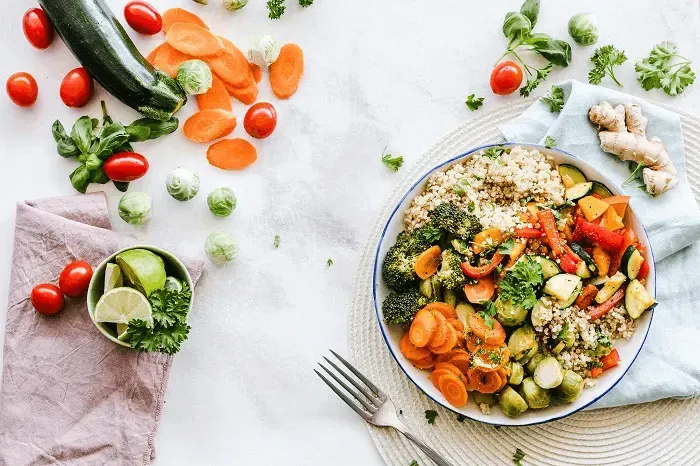A Third Trimester Diet Plan for Expectant Mothers
It’s been a little over 6 months since you first found out that you were expecting. Now, you’re at the tail end of your pregnancy, and you’ll soon be welcoming your little one into the world. So far, you’ve done everything possible to ensure that you and your baby are healthy and safe. With only 3 months left, it’s vital that you take a very close look at your diet, as your baby will start to gain weight and get ready for life outside your womb. Here’s a monthly pregnancy diet plan that you can keep in mind while planning your third trimester diet.

7 Month Pregnancy Diet
Once you enter your third trimester, you’ll notice that your uterus is growing quite considerably. This can cause a bit of stress on your stomach, so you might struggle with heartburn during this month. To help you ease the pain, you can start to eat smaller meals more regularly, and try to avoid eating until you’re absolutely full.
To aid your baby’s development, you will need to add a good amount of protein in your pregnancy diet. Also, in your 7 month pregnancy diet, incorporating poultry, beans, rice and seeds will help you improve your pregnancy diet chart.

8 Month Pregnancy Diet
As your baby continues to grow and your little one’s lungs and brain develop, you need to ensure that you’re eating enough omega-3 fatty acids to help your baby’s growth. Nuts and seeds, ground flaxseeds, and oily fish like salmon are known for their high omega-3 content and should definitely be added to your 8 month pregnancy diet. If you’re suffering with sleeplessness during pregnancy, you can have a cup of unsweetened cherry juice before heading to bed. Unsweetened cherries increase your body’s supply of melatonin, which regulates your sleep and can be a great addition to your third trimester pregnancy diet chart.

9 Month Pregnancy Diet
There’s just a few weeks left until you get to welcome your baby into the world. By now, your baby’s development is almost complete. Your hands and feet will start to swell, which can make it uncomfortable for you to stand, sit, or even lie down for too long. In order to avoid this, you should try to reduce the salt intake in your diet, and try light exercises like swimming or walking.
For most women, the biggest concern during this month is going into labour earlier than the 37th week. If you’re hoping to avoid preterm labour, you should consider adding garlic, dates and raisins to your 9 month pregnancy diet. Doing this will help you carry your baby to term, and can also aid in spontaneous labour – so you won’t have to ask your doctor to induce it.
Every woman has a unique pregnancy experience, so it’s always important that you check with your doctor before making any changes to your pregnancy diet plan. It’s also crucial to remember that eating well through your entire pregnancy is important, as it can have a long-lasting impact on your baby’s development. The kind of food you eat as your baby’s brain starts to develop could affect their intelligence later on in life too. While you’re expecting, it’s a good idea to avoid junk food, as it doesn’t have too many nutrients and has a high fat content. Additionally, when you experience cravings, you should listen to them, as this is your body’s way of telling you that it requires a particular nutrient. At the end of the day, eating well is the key to good health for you and your baby.

